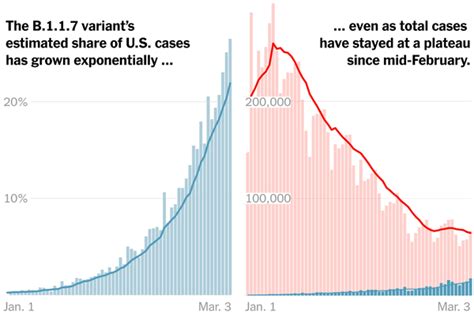
A controversial assertion by Representative Marjorie Taylor Greene claims a teenage migrant, previously held in ICE detention, is “thriving” in Mexico rather than the United States. Greene’s comments, made on social media, have ignited debate amid ongoing discussions about immigration policies and the treatment of detained minors.
Representative Marjorie Taylor Greene has sparked controversy with claims regarding a teenage migrant previously held in Immigration and Customs Enforcement (ICE) detention. Greene asserted that the teen is now “thriving” in Mexico, rather than being in the United States, a statement that has elicited strong reactions amid the highly charged debate over immigration policy.
Greene’s comments, shared across her social media platforms, come at a time when the treatment of migrant children and the broader issue of border security are under intense scrutiny. Her remarks have been interpreted by some as a justification for stricter immigration enforcement, while others have criticized them as insensitive and lacking in compassion.
The congresswoman’s assertions have drawn criticism from advocacy groups and political opponents who argue that such statements oversimplify the complex realities faced by migrants, particularly minors. These groups contend that Greene’s comments fail to acknowledge the potential vulnerabilities and challenges that migrants face, regardless of their location.
The backdrop to Greene’s statement is the ongoing debate over immigration reform, border security, and the humanitarian treatment of migrants arriving in the United States. The Biden administration has faced pressure from both sides of the political spectrum regarding its handling of the situation at the southern border. Republicans have generally advocated for stricter enforcement measures, while Democrats have emphasized the need for a more humane and comprehensive approach to immigration.
As the political discourse intensifies, Greene’s remarks serve as a flashpoint, underscoring the deep divisions and complexities surrounding immigration issues. The controversy highlights the challenge of finding common ground on immigration reform and ensuring the well-being of vulnerable populations seeking refuge or opportunity in the United States.
Context and Details of Greene’s Statement
Representative Greene made her assertions in the context of broader discussions about immigration policies and the handling of migrant children by U.S. authorities. While the specific details of the teen’s case remain unclear, Greene’s statement implies that the individual’s current circumstances in Mexico are preferable to the potential outcomes had they remained in the U.S. under ICE detention.
“Interesting how this teen is ‘thriving’ in Mexico and not the US,” Greene reportedly stated on her social media channels. This statement reflects a sentiment that some migrants may be better off in their home countries or neighboring nations, rather than seeking refuge in the United States.
Critics argue that such statements ignore the systemic issues driving migration, including violence, poverty, and political instability in many countries. They also point to the potential dangers and exploitation that migrants may face in Mexico, particularly if they lack proper documentation or support networks.
Greene’s supporters, however, argue that her comments highlight the importance of border security and the need to discourage illegal immigration. They contend that the U.S. has a right to control its borders and that allowing large numbers of undocumented migrants into the country can strain resources and pose security risks.
Reactions and Political Implications
Greene’s statement has drawn sharp reactions from various quarters. Immigration advocacy groups have condemned her remarks as insensitive and misleading, arguing that they perpetuate harmful stereotypes about migrants.
“It is deeply troubling to see a member of Congress making such callous statements about a vulnerable young person,” said a representative from an immigration advocacy organization. “Migrants, especially children, deserve compassion and support, not political attacks.”
Political opponents have also criticized Greene, accusing her of using the issue of immigration to score political points. They argue that her comments are divisive and undermine efforts to find bipartisan solutions to the challenges facing the immigration system.
“Representative Greene’s remarks are a clear example of the dehumanization of migrants for political gain,” said a Democratic lawmaker. “We need to focus on humane and effective immigration policies, not inflammatory rhetoric.”
On the other hand, Greene’s supporters have defended her statements, arguing that she is simply speaking the truth about the realities of immigration. They contend that her comments are a legitimate expression of concern about the impact of illegal immigration on American society.
“Representative Greene is right to point out that some migrants may be better off in their home countries,” said a conservative commentator. “We need to be honest about the challenges of immigration and the need for stronger border security.”
The controversy surrounding Greene’s statement underscores the deep divisions and complexities of the immigration debate. As the political discourse intensifies, it remains to be seen whether policymakers can find common ground on this critical issue.
Broader Context: Immigration Policies and Detention of Minors
The United States has a long history of grappling with immigration policy, and the issue has become increasingly politicized in recent years. The debate over immigration reform encompasses a wide range of issues, including border security, pathways to citizenship, and the treatment of undocumented immigrants.
One of the most contentious aspects of immigration policy is the detention of minors. Under U.S. law, migrant children who arrive at the border without a parent or guardian are considered unaccompanied minors and are placed in the custody of the Department of Health and Human Services (HHS). HHS is responsible for providing care and shelter to these children while they await immigration proceedings.
However, the detention of migrant children has drawn criticism from human rights groups and legal advocates who argue that it can have detrimental effects on their mental and physical health. They point to reports of overcrowding, inadequate medical care, and psychological trauma in detention facilities.
The Biden administration has pledged to prioritize the humane treatment of migrants and to reduce the use of detention for children and families. However, the administration has also faced challenges in managing the influx of migrants at the southern border, and detention remains a part of the government’s response.
Legal and Ethical Considerations
The detention of migrant children raises complex legal and ethical questions. Under international law, children have a right to protection and should only be detained as a measure of last resort. The United States is a party to several international agreements that recognize these rights.
U.S. law also provides certain protections for migrant children. The Trafficking Victims Protection Reauthorization Act (TVPRA) requires that unaccompanied minors be screened to determine whether they are victims of trafficking or have other protection claims. The law also requires that children be placed in the least restrictive setting that is in their best interests.
Despite these legal protections, concerns remain about the treatment of migrant children in U.S. custody. Advocates argue that the government needs to do more to ensure that children are treated humanely and that their rights are protected.
The ethical considerations surrounding the detention of migrant children are equally complex. Many argue that it is morally wrong to detain children, especially those who have experienced trauma or are fleeing violence and persecution. They contend that the government has a responsibility to provide care and support to these vulnerable children, rather than detaining them.
Others argue that the government has a right to control its borders and to detain those who enter the country illegally. They contend that detention is necessary to ensure that migrants appear for immigration proceedings and to deter others from coming to the U.S. illegally.
Mexico’s Role and Migrant Conditions
Mexico plays a significant role in the migration patterns affecting the United States. As a neighboring country, it serves as both a transit point and a destination for migrants from Central America, South America, and other parts of the world.
The Mexican government has faced pressure from the United States to increase its enforcement of immigration laws and to prevent migrants from reaching the U.S. border. Mexico has responded by deploying troops to its southern border and by increasing deportations of migrants.
However, Mexico also faces challenges in protecting the rights of migrants within its borders. Migrants in Mexico are vulnerable to violence, exploitation, and discrimination. Many migrants are forced to live in overcrowded shelters or on the streets, where they are at risk of crime and disease.
The Mexican government has taken some steps to improve the conditions for migrants, but much more needs to be done. Human rights groups have called on Mexico to strengthen its protection of migrant rights and to ensure that migrants have access to basic services such as healthcare and education.
Greene’s claim that a teen is “thriving” in Mexico requires a deeper examination of the conditions migrants face in the country. While some individuals may find opportunities and support networks, many others struggle with poverty, discrimination, and violence.
Alternative Perspectives on Migrant Well-being
Assessing the well-being of migrants requires a nuanced understanding of their individual circumstances and experiences. While some migrants may indeed find opportunities to thrive in new environments, others may face significant challenges and hardships.
Factors that can influence a migrant’s well-being include their access to education, healthcare, employment, and social support. Language barriers, cultural differences, and discrimination can also affect a migrant’s ability to integrate into a new society.
It is important to avoid generalizations about the well-being of migrants and to recognize that each individual’s experience is unique. Some migrants may find that their lives improve after moving to a new country, while others may struggle to adapt and may experience feelings of isolation and displacement.
Greene’s claim that a teen is “thriving” in Mexico may be based on limited information and may not reflect the full reality of the individual’s situation. It is essential to consider the broader context of migration and the challenges that migrants face in both the United States and Mexico.
The Need for Comprehensive Solutions
The issue of immigration is complex and multifaceted, and there are no easy solutions. Addressing the challenges of immigration requires a comprehensive approach that takes into account the needs of migrants, the concerns of host communities, and the root causes of migration.
Some possible solutions include:
- Investing in economic development in Central America and other countries to address the root causes of migration.
- Strengthening border security and enforcing immigration laws in a humane and effective manner.
- Providing pathways to citizenship for undocumented immigrants who have been living and working in the U.S. for many years.
- Improving the treatment of migrants in detention and ensuring that they have access to legal representation.
- Promoting integration and inclusion of migrants into American society.
Finding common ground on immigration reform will require a willingness to compromise and to consider different perspectives. It will also require a commitment to addressing the underlying issues that drive migration and to creating a system that is fair, humane, and effective.
The controversy surrounding Greene’s statement highlights the urgent need for a more constructive and compassionate approach to immigration. By focusing on solutions and working together, policymakers can create a system that benefits both migrants and the communities they join. The well-being of children, in particular, should be a paramount concern, and policies should prioritize their safety, health, and development.
Frequently Asked Questions (FAQ)
1. What was the specific claim made by Representative Marjorie Taylor Greene?
Representative Marjorie Taylor Greene claimed that a teenage migrant, previously held in ICE detention, is “thriving” in Mexico rather than the United States. This statement was made on her social media platforms and has sparked significant controversy.
2. Why is Greene’s statement considered controversial?
The statement is controversial because it is viewed by many as insensitive to the plight of migrants, particularly children, who may be fleeing violence, poverty, or persecution in their home countries. Critics argue that it oversimplifies the complex realities faced by migrants and ignores the potential dangers and challenges they may encounter in Mexico.
3. What are some of the criticisms leveled against Greene’s statement?
Criticisms include:
- Dehumanizing migrants for political gain.
- Ignoring the systemic issues that drive migration.
- Oversimplifying the experiences and challenges faced by migrants in Mexico.
- Lacking compassion for vulnerable young people.
4. What is the broader context surrounding the detention of migrant children in the U.S.?
The detention of migrant children is a contentious issue due to concerns about the potential negative effects on their mental and physical health. Human rights groups and legal advocates have reported issues such as overcrowding, inadequate medical care, and psychological trauma in detention facilities. International and U.S. laws provide certain protections for migrant children, but concerns remain about their treatment in U.S. custody.
5. What challenges do migrants typically face in Mexico?
Migrants in Mexico are vulnerable to violence, exploitation, and discrimination. Many are forced to live in overcrowded shelters or on the streets, where they are at risk of crime and disease. They may also face challenges related to language barriers, cultural differences, and lack of access to basic services such as healthcare and education. Expanding the Article with Further Analysis
To provide a more comprehensive understanding of the situation surrounding Representative Greene’s statements, it’s essential to delve into the intricacies of immigration policies, the legal framework governing the treatment of migrant children, and the socioeconomic conditions influencing migrant experiences in both the United States and Mexico.
Immigration Policies in the United States: A Historical Overview
The history of immigration policy in the United States is characterized by alternating periods of openness and restriction, often influenced by economic conditions, national security concerns, and social attitudes. Early immigration laws, such as the Naturalization Act of 1790, primarily focused on defining citizenship requirements. However, as immigration increased in the 19th and 20th centuries, Congress enacted more comprehensive legislation to regulate the flow of newcomers.
Key milestones in U.S. immigration policy include:
- The Chinese Exclusion Act of 1882: This law prohibited the immigration of Chinese laborers and marked the first significant restriction on immigration based on nationality.
- The Immigration Act of 1917: This act imposed literacy tests and barred immigrants from certain regions, reflecting nativist sentiments and concerns about national security during World War I.
- The National Origins Act of 1924: This law established quotas based on national origin, favoring immigrants from Western European countries and severely limiting immigration from other parts of the world.
- The Immigration and Nationality Act of 1952 (McCarran-Walter Act): This act maintained the national origins quota system but also introduced preferences for skilled workers and relatives of U.S. citizens.
- The Immigration and Nationality Act of 1965 (Hart-Celler Act): This landmark legislation abolished the national origins quota system and established a preference system based on family relationships and skills. This act significantly altered the demographics of immigration to the United States.
- The Immigration Reform and Control Act of 1986 (IRCA): This law granted amnesty to undocumented immigrants who had resided in the U.S. continuously since January 1, 1982, while also imposing sanctions on employers who hired undocumented workers.
- The Illegal Immigration Reform and Immigrant Responsibility Act of 1996 (IIRIRA): This act strengthened border enforcement, increased penalties for immigration violations, and limited access to public benefits for undocumented immigrants.
In recent decades, immigration policy has become increasingly politicized, with debates focusing on border security, the treatment of undocumented immigrants, and the economic impact of immigration. The Obama administration implemented the Deferred Action for Childhood Arrivals (DACA) program, which provided temporary protection from deportation for undocumented immigrants who had arrived in the U.S. as children. The Trump administration sought to rescind DACA and implemented stricter enforcement measures, including the separation of families at the border. The Biden administration has reversed some of these policies and has pledged to pursue comprehensive immigration reform.
The Legal Framework for the Detention of Migrant Children
The detention of migrant children is governed by a complex web of laws, regulations, and court decisions. Key legal provisions include:
- The Flores Settlement Agreement (1997): This agreement sets standards for the detention and release of migrant children, requiring that they be held in the least restrictive setting appropriate to their age and special needs and that they be released to a parent, guardian, or other suitable custodian as quickly as possible.
- The Trafficking Victims Protection Reauthorization Act (TVPRA) of 2008: This law provides special protections for unaccompanied minors, requiring that they be screened to determine whether they are victims of trafficking or have other protection claims. It also requires that they be placed in the least restrictive setting that is in their best interests.
- The Homeland Security Act of 2002: This act established the Department of Homeland Security (DHS), which is responsible for enforcing immigration laws and managing border security. DHS includes agencies such as Immigration and Customs Enforcement (ICE) and Customs and Border Protection (CBP).
- Immigration and Nationality Act (INA): This act outlines the laws, rules and regulations surrounding immigration, naturalization, and the rights, duties, and obligations of immigrants and non-immigrants in the United States.
Despite these legal protections, concerns persist about the treatment of migrant children in U.S. custody. Human rights groups have documented instances of overcrowding, inadequate medical care, and psychological trauma in detention facilities. They have also raised concerns about the separation of families at the border and the detention of children with their parents in restrictive settings.
The Biden administration has taken steps to reduce the use of detention for migrant children and families, but the issue remains a subject of ongoing debate and legal challenges.
Socioeconomic Conditions and Migrant Experiences in Mexico
Mexico’s role in migration dynamics is complex, as it serves both as a transit country for migrants heading to the U.S. and as a destination country for migrants seeking economic opportunities or refuge.
The socioeconomic conditions in Mexico vary widely across regions, with some areas experiencing rapid economic growth and development, while others struggle with poverty, inequality, and violence. These disparities contribute to internal migration within Mexico and also influence the experiences of migrants from other countries who transit through or settle in Mexico.
Migrants in Mexico face a range of challenges, including:
- Poverty and lack of economic opportunities: Many migrants are unable to find stable employment or earn a living wage, which can lead to poverty and hardship.
- Discrimination and xenophobia: Migrants often face discrimination and xenophobia from local populations, which can limit their access to housing, employment, and other essential services.
- Violence and crime: Migrants are vulnerable to violence and crime, including extortion, kidnapping, and sexual assault, particularly in border areas and transit routes controlled by organized criminal groups.
- Lack of access to healthcare and education: Migrants may face barriers to accessing healthcare and education due to language barriers, legal status, and discrimination.
- Exploitation by employers and landlords: Undocumented migrants are particularly vulnerable to exploitation by unscrupulous employers and landlords who may pay them less than minimum wage or charge exorbitant rents.
The Mexican government has taken some steps to improve the conditions for migrants, including providing humanitarian assistance, strengthening border security, and prosecuting human traffickers. However, much more needs to be done to protect the rights of migrants and to ensure that they have access to basic services and opportunities.
The experiences of migrants in Mexico vary depending on their country of origin, legal status, and individual circumstances. Some migrants may find opportunities to thrive and integrate into Mexican society, while others may face significant challenges and hardships. It is important to recognize the diversity of migrant experiences and to avoid generalizations about their well-being.
Analyzing the Impact of Greene’s Statement
Representative Greene’s statement, while seemingly isolated, is representative of broader narratives influencing public discourse on immigration. Her assertion that a migrant teen is “thriving” in Mexico, instead of the US, appeals to specific ideological viewpoints and can have several impacts:
- Reinforcing Anti-Immigrant Sentiment: By suggesting that migrants are better off outside the US, Greene’s statement reinforces negative stereotypes and prejudices against immigrants. This can contribute to a climate of hostility and discrimination.
- Justifying Restrictive Immigration Policies: Such statements are often used to justify stricter border enforcement measures, limiting legal immigration pathways, and reducing humanitarian aid for migrants. The underlying logic is that if migrants are “thriving” elsewhere, there’s less need to offer assistance or refuge.
- Oversimplifying Complex Realities: The notion of “thriving” is highly subjective and doesn’t account for the multifaceted challenges migrants face. It ignores the systemic issues like violence, poverty, and lack of opportunities that drive migration in the first place.
- Polarizing Public Opinion: Greene’s statement is likely to resonate with those already holding anti-immigration views, further deepening divisions in public opinion on the issue. This polarization can hinder constructive dialogue and policymaking.
- Ignoring US Responsibility: By focusing on the perceived benefits of being in Mexico, Greene’s statement deflects attention from the US’s role in addressing the root causes of migration and ensuring humane treatment of asylum seekers.
The Role of Media and Public Discourse
The media plays a crucial role in shaping public perceptions of immigration. Sensationalized reporting, biased framing, and the spread of misinformation can all contribute to negative attitudes towards migrants.
It is important for journalists to provide accurate and balanced coverage of immigration issues, highlighting the human stories behind the statistics and challenging stereotypes and prejudices. The media should also hold politicians accountable for their statements and policies on immigration and provide a platform for diverse voices and perspectives.
Social media has also become a significant source of information and opinion on immigration. While social media can facilitate the sharing of information and connect people across borders, it can also be used to spread misinformation and hate speech. Users should be critical of the information they encounter on social media and should seek out reliable sources of information.
Moving Towards a More Humane and Effective Approach
Addressing the challenges of immigration requires a shift away from divisive rhetoric and towards a more humane and effective approach. This includes:
- Addressing the Root Causes of Migration: Investing in economic development, promoting good governance, and addressing violence and instability in Central America and other countries.
- Strengthening Legal Pathways for Migration: Expanding opportunities for legal immigration, including family-based visas, employment-based visas, and refugee resettlement.
- Ensuring Humane Treatment of Migrants: Providing access to legal representation, healthcare, and education for migrants in detention and in the community.
- Promoting Integration and Inclusion: Supporting programs that help migrants integrate into American society, including language classes, job training, and cultural orientation.
- Reforming Border Enforcement: Focusing on smart border security measures that are effective and humane, such as technology and intelligence gathering, rather than relying solely on physical barriers and aggressive enforcement tactics.
- Creating Bipartisan Consensus: Building consensus across party lines on immigration reform by engaging in good-faith negotiations and seeking common ground.
Ultimately, solving the challenges of immigration requires a long-term commitment to creating a system that is fair, humane, and effective. This requires not only policy changes but also a shift in attitudes and a willingness to see migrants as fellow human beings deserving of dignity and respect. It necessitates evidence-based discussions and policy, rather than relying on anecdotal assertions to support political narratives. The focus should be on building communities where both immigrants and long-time residents can thrive, fostering a society that is more inclusive and prosperous for all.









